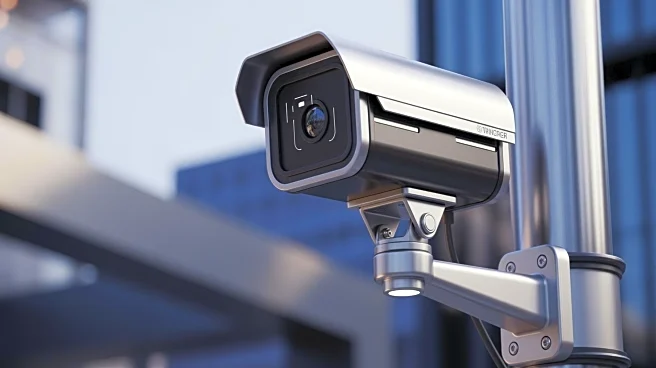What's Happening?
Immigration and Customs Enforcement (ICE) is enhancing its surveillance capabilities by acquiring new technology, including a mobile facial recognition app called Mobile Fortify. This app allows federal agents to identify individuals by scanning their
faces and fingerprints, accessing databases to retrieve information such as names, birth dates, and citizenship status. The Department of Homeland Security is also increasing its social media surveillance and considering hiring contractors to monitor platforms like Facebook and TikTok. Privacy advocates and some Democratic lawmakers have raised concerns about the potential erosion of privacy rights and the lack of regulatory oversight. The Trump administration aims to use these technologies to increase deportations, targeting noncitizens for removal.
Why It's Important?
The expansion of ICE's surveillance tools has significant implications for privacy and civil liberties in the U.S. Critics argue that these technologies could lead to mass surveillance, affecting both immigrants and citizens. The ability to identify individuals in public spaces may deter participation in protests and other public activities, impacting freedom of speech and assembly. The use of facial recognition technology, particularly its reliability for people of color, raises concerns about potential misuse and discrimination. The Trump administration's aggressive immigration enforcement strategy, coupled with advanced surveillance, could reshape the landscape of privacy rights and government accountability.
What's Next?
Democratic senators have called on ICE to halt the use of facial recognition technology and provide answers regarding its deployment. The public has the opportunity to comment on a proposed rule that would expand biometric data collection from noncitizens and their relatives. Legal challenges may arise as privacy advocates and civil liberties groups push for greater oversight and regulation. The ongoing debate over surveillance technology and privacy rights is likely to intensify, with potential legislative and judicial actions shaping the future of these practices.
Beyond the Headlines
The use of advanced surveillance technology by ICE highlights broader ethical and legal questions about government surveillance and individual privacy. The potential for these tools to be used beyond immigration enforcement, in general policing, raises concerns about the balance between security and civil liberties. The development and deployment of such technologies may prompt discussions on the need for comprehensive privacy laws and regulations to protect citizens' rights in the digital age.















